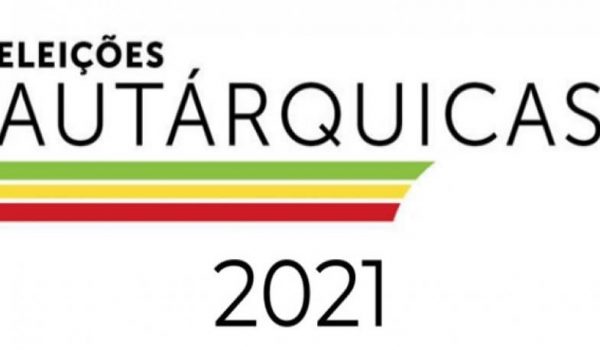Table of Contents
- Top 20 Betting Sites in the UK – Best Online Betting Platforms for 2023
- Comprehensive Overview of the Leading Wagering Platforms
- Criteria for Evaluating Virtual Wagering Options
- Industry Leading Brands: A Quick Snapshot
- Understanding the Licensing and Regulation Standards
- Exploring User Experience and Interface Design
Top 20 Betting Sites in the UK – Best Online Betting Platforms for 2023
As the landscape of virtual wagering continues to evolve, players in Britain are presented with a diverse array of options, each offering unique features and benefits. Selecting the right virtual destination can betting sites be a daunting task, especially with the multitude of choices available. This comprehensive guide aims to simplify your quest by showcasing an elite selection of platforms tailored for various preferences and wagering styles.
Different portals cater to specific needs; whether you are an enthusiast for live events, prefer immersive experiences, or seek out extensive markets, there’s something for everyone. By utilizing this resource, you can navigate the digital arena with confidence, allowing you to discover innovative features, favorable odds, and secure transaction methods.
Additionally, we will delve into critical factors to consider, such as customer support quality, availability of mobile applications, and promotional offers that enhance your experience. By making informed decisions based on detailed insights, you can optimize your enjoyment and potential success within this dynamic field.
Comprehensive Overview of the Leading Wagering Platforms
When selecting a wagering platform, it’s crucial to consider several parameters that enhance your experience and ensure security. Here’s a focused analysis of prominent contenders in the industry, highlighting unique features, promotions, and user engagement strategies.
-
Platform A: Known for its extensive range of markets and competitive odds. Offers a mobile app that provides seamless navigation and live betting options. Promotions include a welcome bonus and regular free bets for loyal users.
-
Platform B: Specializes in esports and virtual sports, attracting a younger demographic. Provides innovative features like in-play betting and cash-out options, improving overall user control during events.
-
Platform C: Praised for its rich selection of casino games alongside traditional markets. Users benefit from a user-friendly interface and 24/7 customer support, enhancing the overall customer experience.
-
Platform D: Features a unique loyalty program that rewards frequent players with tailored bonuses and promotions. The live streaming feature enables users to watch events in real time, promoting engagement.
-
Platform E: Focuses on risk-free bets, allowing newcomers to wager without the fear of losing their initial stake. The educational resources provided are particularly beneficial for novice gamblers.
In understanding the landscape of these offerings, it’s beneficial to recognize additional factors:
-
User Accessibility: Most providers offer intuitive platforms, enriching user experience, whether via desktop or mobile devices.
-
Payment Options: A diverse range of payment methods, including e-wallets, credit cards, and cryptocurrencies, is available, catering to various user preferences.
-
Licensing and Regulation: Ensuring that each platform holds valid licenses enhances trustworthiness. Reputable entities are regulated by recognized authorities, providing assurance to users.
-
Customer Support: Reliable assistance is essential. Many platforms provide multiple channels for support, including live chat, email, and telephone.
Choosing the right platform requires an assessment of individual needs and preferences. Factors such as bonuses, user interface, and community engagement are pivotal in crafting a satisfying experience. Consider exploring these platforms further to find the one that aligns best with your wagering style.
Criteria for Evaluating Virtual Wagering Options
Assessing virtual wagering options involves a multi-faceted approach that ensures a safe and enjoyable experience for participants. Key factors to consider include licensing, user interface, available markets, and promotional offers.
Licensing is crucial; a reputable entity must hold a valid license from a recognized authority, ensuring transparency and security. Look for certifications from organizations such as the UK Gambling Commission or the Malta Gaming Authority.
User experience significantly impacts overall satisfaction. An intuitive layout, fast load times, and mobile compatibility enhance accessibility and convenience. Examine platforms that offer a seamless transition between desktop and mobile interfaces.
Market variety should cater to diverse interests. A wide array of options, including niche events and international competitions, attracts different user preferences. Check if the platform covers popular sports and alternative markets like esports or virtual events.
Promotions and bonuses are pivotal in attracting and retaining users. Evaluating these offers requires attention to their terms and conditions, particularly wagering requirements that dictate how bonuses can be utilized or withdrawn.
| Licensing | High | Valid licenses from recognized authorities |
| User Interface | High | Intuitive design, mobile optimization |
| Market Variety | Medium | Diverse sports and niche events available |
| Promotional Offers | Medium | Clear terms, reasonable wagering requirements |
Moreover, payment options play a significant role; look for diverse methods that provide easy deposits and fast withdrawals. Trusted methods such as credit cards, e-wallets, and bank transfers ensure convenience and security.
Customer support effectiveness is another essential aspect. Test responsiveness through live chat or email inquiries and assess availability via multiple communication methods. Quality assistance contributes to a positive overall experience.
Finally, user reviews provide valuable insights into the platform’s credibility. Engaging with experienced users’ feedback can highlight strengths and weaknesses, offering a clearer picture of what to expect.
Industry Leading Brands: A Quick Snapshot
In recent years, several brands have outshined others in the competitive realm of digital wagering. Each platform offers unique features, promotions, and user experiences tailored to diverse preferences.
Brand A stands out with its user-friendly interface and extensive range of markets, including niche options. It is particularly noted for its generous welcome promotions and loyalty rewards program, which keeps punters coming back.
Brand B excels in live wagering, providing real-time updates and dynamic odds. Their streaming service allows users to watch events as they happen, enhancing the thrill for enthusiasts who prefer active participation.
Brand C is recognized for its mobile application, which delivers a seamless experience across devices. With quick navigation and user-specific features, it caters well to users who favor convenience and on-the-go access.
Brand D features a robust security protocol, ensuring that user data is protected through cutting-edge encryption. This focus on safety builds trust, a crucial factor for many consumers in selecting a platform.
Brand E has made a name for itself through competitive odds and a comprehensive array of promotions. Frequent specials and enhanced payouts attract savvy bettors looking to maximize their returns.
Ultimately, individual preferences dictate the best choice for each user. Engaging with these recognized entities can provide a fulfilling experience, whether for casual entertainment or serious strategy.
Understanding the Licensing and Regulation Standards
The integrity and safety of wagering activities are significantly influenced by robust licensing and regulatory frameworks. In the United Kingdom, the Gambling Commission oversees the gambling industry, enforcing strict guidelines to maintain fairness and security for participants.
Licenses are granted after thorough evaluations, ensuring operators adhere to principles such as responsible gaming, prevention of money laundering, and protection of minors. It’s essential to check for a valid license number displayed prominently on an operator’s website, as this indicates compliance with regulatory requirements.
In addition to the Gambling Commission, various organizations, such as eCOGRA and IBAS, conduct independent audits and offer dispute resolution services. Their endorsements can provide added assurance regarding fair play and customer protection.
Players should also be aware of regional regulations that might apply, particularly regarding withdrawals and payouts. Operations within the UK must provide transparent terms for all services, ensuring players can make informed decisions without hidden conditions.
Another important aspect is the implementation of responsible gambling features, such as self-exclusion programs and deposit limits. Licensed providers are obligated to promote these features, contributing to a safer gambling environment.
When reviewing operators, look for information about their compliance with GDPR, ensuring the protection of personal data. Understanding these aspects can help participants choose platforms that prioritize their safety and security.
Exploring User Experience and Interface Design
User experience (UX) and interface design (UI) play a pivotal role in how individuals engage with digital platforms. Smooth navigation, aesthetic appeal, and intuitive layouts significantly enhance user satisfaction. In the context of wagering websites, a well-crafted interface can directly influence user retention and engagement rates.
Key elements to consider include load times; a study indicates that approximately 47% of users expect a page to load within two seconds. Latency issues can lead to high bounce rates, especially during peak hours. Consequently, optimizing website performance is crucial for retaining users.
Another vital aspect is mobile responsiveness. With over 60% of users accessing platforms via smartphones, a responsive design ensures that functionality is maintained across devices. Employing a mobile-first strategy can enhance user experiences significantly.
Visual hierarchy is fundamental in interface design. Clear categorization and prioritization of information guide users effectively through available options. Utilizing distinct typography and contrasting colors can create a seamless flow, reducing cognitive load.
Interactivity features, such as live chat support and personalized notifications, can further engage users. Implementing real-time assistance creates a sense of reliability and comfort, thereby encouraging prolonged interaction.
An intuitive registration process is also critical. Simplifying sign-up forms and minimizing required steps can reduce drop-off rates. Offering options to log in via social media accounts can enhance convenience and attract new users.
User feedback mechanisms should be integrated into the platform, allowing individuals to voice their opinions on usability and design. Regular updates based on constructive criticism can demonstrate a commitment to user satisfaction, fostering loyalty.
Finally, ensuring robust security measures is paramount. Clear communication regarding data protection builds trust, essential for long-term engagement. Users are more likely to return to platforms where they feel their information is secure.








